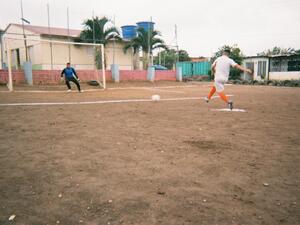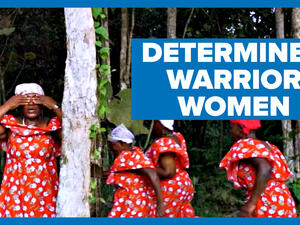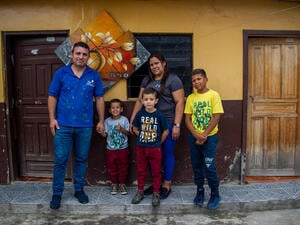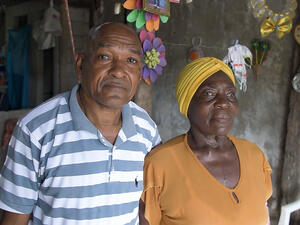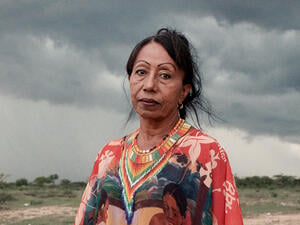Colombia: AHC for Operations ends visit, calls for more support
Colombia: AHC for Operations ends visit, calls for more support
UNHCR's Assistant High Commissioner (AHC) for Operations, Judy Cheng-Hopkins, has ended a visit to the Andean region with a call for greater international solidarity with the victims of the Colombian conflict. The Assistant High Commissioner left Bogota last night at the end of a week-long mission during which she met with high-level government officials and visited UNHCR's field offices in both Colombia and neighbouring Ecuador.
During a meeting at the Colombian Foreign Ministry yesterday (Monday), Cheng-Hopkins expressed her appreciation of the government's stepped-up efforts to help the country's 2.5 million displaced people. She especially noted the significant increase in budget announced at the end of last year for assisting the internally displaced.
The Assistant High Commissioner expressed concern, however, that more people every year join the ranks of those who are forced to leave their homes, jobs and communities to flee the violence of the 42-year conflict. She also highlighted the difficulties for UNHCR of providing protection in a vast country where the conflict has spread out to many departments and is at its worst in remote rural locations.
During the weekend, the Assistant High Commissioner witnessed first-hand the impact of the conflict on displaced communities in different parts of the country, starting with the department of Nariño in the south-west of Colombia. Nariño has seen a marked increase in violence in recent months, with more than 7,000 people forced to flee their homes since the start of the year. The AHC then travelled to the city of Barranquilla on the Atlantic coast in the north of Colombia, another region badly affected by the conflict. In both departments, Cheng-Hopkins visited income-generating and housing projects supported by UNHCR for the benefit of displaced communities.
The Assistant High Commissioner, who started her visit of the region in Ecuador last week, also stressed the close link between displacement and refugee outflows. In addition to the 2.5 million forcibly displaced people within Colombia, there are hundreds of thousands of Colombians who have fled to neighbouring countries to escape the violence - most of them to Ecuador and Venezuela.
Cheng-Hopkins said it was crucial that countries in the region work together to provide protection to those affected by the conflict. She also called on the international community to pay more attention to what she described as an invisible humanitarian tragedy.



